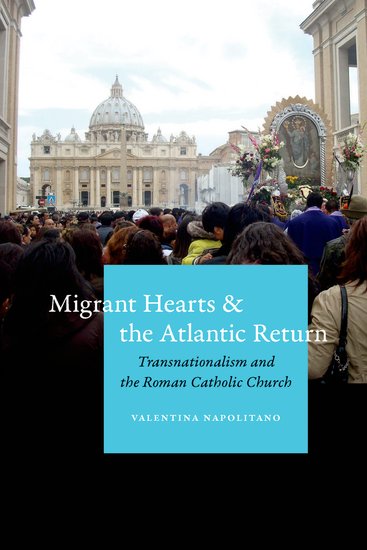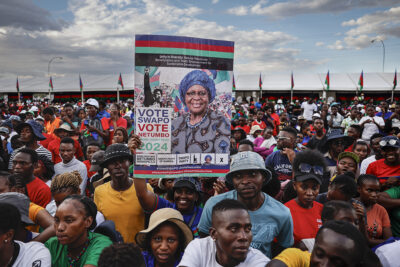The Centre for German-Jewish Studies at the University of Sussex and Woodbrooke Centre for Postgraduate Quaker Studies, Birmingham, invite submissions for a groundbreaking joint one-day conference to be held at the University of Sussex on December 14, 2017, under the title "Jews and Quakers: On the borders of acceptability." The conference aims to explore the impact on the thought, theology, and praxis of Jewish and Quaker communities following experiences of persecution, political alienation, and outsider status in the wider communities in which they have lived in Europe, North America, and globally since the seventeenth century. It offers a rare opportunity for researchers to identify and explore such parallels and differences as might be found between the experiences of Jews and Quakers. The coordinators welcome papers from established scholars, postdoctoral early career researchers, and doctoral candidates. The deadline for submissions is April 10, 2017. More details can be found here or on their website.
Latest posts
Mere Civility and Jeremiah Wright
by Benjamin HertzbergReporters who covered the Jeremiah Wright controversy during the 2008 United States presidential campaign would have benefited from reading Mere Civility. Barack Obama’s Chicago pastor was briefly famous when ABC News aired a video of him crying “God damn America” from the pulpit of his church. Mere Civility suggests that Wright’s insults not only mimic his Biblical namesake, but also channel Martin Luther, who frequently damned Catholics, and Roger Williams, who offered similar imprecations and felt that doing so should be considered civil. In this impressive new work, Teresa Bejan does the contextual and interpretative analysis necessary to exhume Williams’s theory of civility, and she compares it favorably with those of Williams’s more famous contemporaries, Thomas Hobbes and John Locke. She claims Williams’s view brings analytical clarity to contemporary discussions of civility and should be adopted today.
Mere Civility—An introduction
by Teresa BejanAt the height of the 2016 American presidential election, a colleague asked whether I was worried that my forthcoming book on civility might be overtaken by events. . . . With the inauguration of our new Incivilitarian-in-Chief, a man who has apparently elevated ad hominem to new heights of electoral success, surely the once perennial bloom is, at long last, off the “civilitarian” rose? Yet, as lamentations about our pathological public sphere continue to mount in some quarters—met by calls for conscientious incivility as a sign of one’s intolerance towards the new regime in others—deeper reflection on the meaning of civility and its vexed relationship to toleration appears more timely than ever. As a marriage of political theory and intellectual history, Mere Civility: Disagreement and the Limits of Toleration explores our contemporary crisis of civility by way of an in-depth examination of seventeenth-century debates about religious toleration.
Writing religion for the IPSP
 by
The Editors
by
The Editors
Can we hope for a better society? That is the animating question behind an ambitious project, the International Panel on Social Progress (IPSP). It exists to “harness the competence of hundreds of experts about social issues” and to “deliver a report addressed to all social actors, movements, organizations, politicians, and decision-makers, in order to provide them with the best expertise on questions that bear on social change.” Also modeled on the IPCC, drafts of the chapter reports are available for public comment. These are the collected responses to Chapter 16- Religions and Social Progress: Critical Assessments and Creative Partnerships, gathered from readers of The Immanent Frame. To read the original call for comments, written by coordinating lead authors Nancy Ammerman and Grace Davie, click here.
Catholic Humanitas: Notes on Critical Catholic Studies
 by
Valentina Napolitano
by
Valentina Napolitano
Contemporary engagement with embodied practices of Latin American transnational migrancy, as well as the long durée of the return of Catholic religious materialities, ideas, and fantasies from the Americas to Rome, shows the reignition of an old conflict within the Catholic Church and a lasting paradox within a Catholic Humanitas. This is the paradox growing from the Catholic fantasy of “full” conversion of the Other/Indian, with her imagined docile, childlike, as well as barbaric qualities—a fantasy that positions the Other/Indian as at once within and without a Catholic Humanitas. This constitutive dimension of Catholic Humanitas infuses the tension between Sameness and Otherness that still permeates Western cosmologies and, for better and worse, political practices toward migration and hospitality in Europe . . . . Under a present condition—in which a part of the clergy in Rome foregrounds personhood based on a Roman civic heritage, rather than multiple ways of being Catholic—attacks to Catholic Humanitas are seen as an attack on everyday civitas (conceived as a Sameness in the singular). If Catholicism has been a self-evident, “cultural” root of secular Europe, it has just as clearly shaped a potent political aesthetic of exclusion.
CFP | Converting Spaces: Re-Directing Missions Through Global Encounters
by Olivia WhitenerThe department of religious studies at the University of California-Santa Barbara, with support from the Cordano Endowment in Catholic Studies, will host an interdisciplinary conference from May 4-6, 2017, entitled “Converting Spaces: Re-Directing Missions Through Global Encounters.” The keynote speaker for the event is Dr. Liam Brockey of the history department at Michigan State University. Proposals addressing the relation of space to conversion in the context of European global and colonial expansion from the sixteenth century onwards are welcome from established scholars, graduate students, and independent researchers. The deadline for submissions is February 17, 2017.












